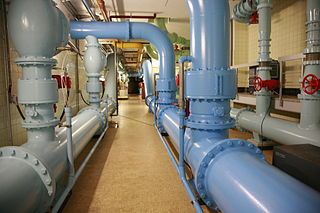From Guest Blogger Ann Shirley: What Does a Water and Wastewater Treatment Plant Operator Do?

Operator’s Duties
Operators run the equipment responsible for cleaning and purifying the water. Depending on the size of the plant, some operators run many different areas. For smaller plants, the Operator may be responsible for testing the water, documentation, making repairs such as changing any Hayward strainers, and running the equipment. For larger plants, Operators tend to have more focused job responsibilities because there are more employees and Operators only have to focus on one area of the plant. Operators also maintain the equipment used to pump the sewage such as the engines, pumps, and generators. They keep track of any laboratory information and they keep track of any meter and gauge readings.
They Work During Emergencies
Operators are needed during emergencies. If there’s been a storm with heavy rains, all the excess water can flood the sewer pipes and the water supply. Other types of emergencies where Operators are needed are a chlorine gas leak or an oxygen deficiency in the plant. All operators are trained to handle emergency situations and know how to follow certain procedures to safe guard the public and the plant.
Education and Training Required
The minimum amount of education required or expected for a position of this nature is a high school diploma. The equipment used these days is complex and computer controlled, so employers are looking for a certain intelligence level, one which a high school graduate possesses. As time moves on, the education required for this type of position is expanding because the treatment plants have become more advanced due to the new water quality standards and pollution control regulations. Trainees, or people training to work as an Operator, start off by doing routine tasks such as doing meter readings, taking samples of water and sludge, simple upkeep tasks such as cleaning and changing hayward strainers , and repair work on pumps, motors, and valves. If working or training for a larger treatment plant, these facilities tend to have a training program in place for new comers or a self-study program. Many colleges and technical schools are now offering an associate’s degree or certificate of completion for programs in water quality and wastewater technology. People seeking employment in this field will have a much better chance of obtaining employment if they have this educational background. Also, if it’s time to update or refresh any skills of the Treatment Plant Operator, courses can be taken with a water quality association or state operating training center.
Water and Wastewater Treatment Plant Operators have an important job to do, and if a person enjoys the field of public health then this may be a perfect career for them to consider. It’s a lot of information to take in and learn, but it can be a very satisfying and decent paying job.
